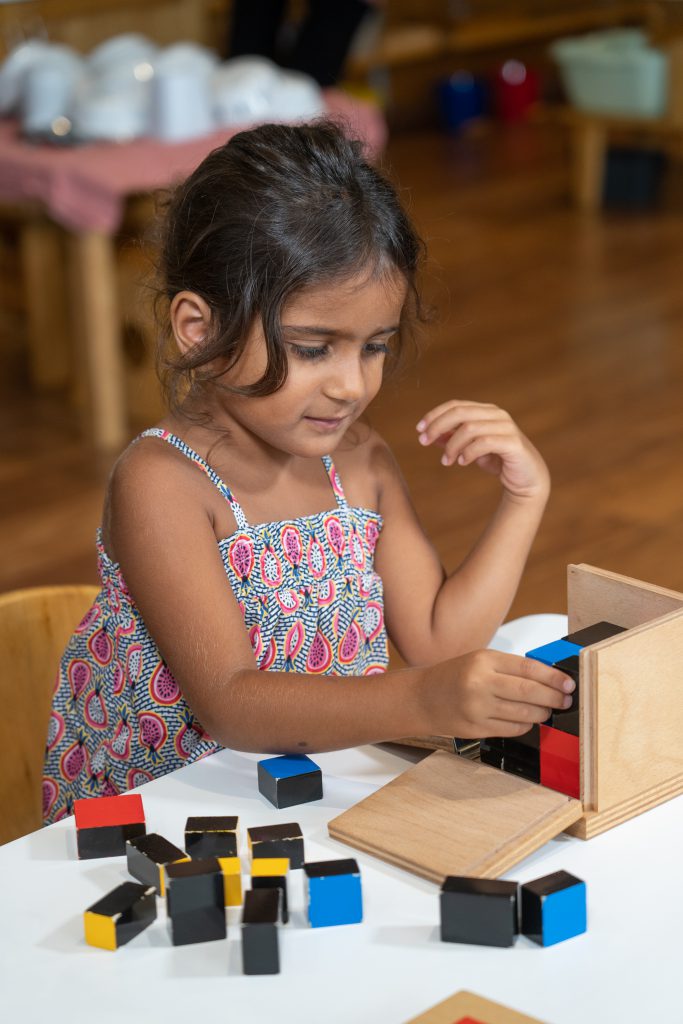
The children’s house welcomes children from 2 and a half years old – 3 to 6 years old.
We have 3 adults in each class, a French-speaking educator, an English-speaking educator and a bilingual assistant and 28 children.
All adults are AMI graduates. In the Children’s House, we collaborate with the child to be, in a caring environment. We work with children to consolidate all the achievements of the Infant Community.
The child learns to adapt to his environment by reproducing cultural gestures. He opens up to others and awakens differently.
The small child needs to repeat the activities. She/He imitates, collaborates with adults for her/his good psychic development. The activities are designed so that she/he can do, repeat independently and thus progress towards independence
In an environment designed to develop confidence, children learn to assert their needs, gain confidence in their own feelings, abilities, emotions and desires.
The child develops his interest in the activities among those offered and through repeated manipulation manages to refine his gestures, concentrate and build himself.
The aesthetics and beauty of the material arouse the interest of the child who freely chooses to work with one activity or another to build in him a meaning, to develop a character.
It is the action by which the child manages to link objects thanks to his visual, auditory and tactile memory, to structure his reflections, to organize and order things between them and in relation to each other.
The position of objects on the set and in the environment allows exploration at the same time as it builds an internal order in the child and promotes logical thinking.
Allows children to live with their peers, to imitate the behavior of those around them and thus to understand them.
Thanks to this, he will be able to adapt to the rules of the environment and develop virtues such as patience, mutual aid but also take care of others and his environment.
Socialization allows children to shift their focus and turn to others

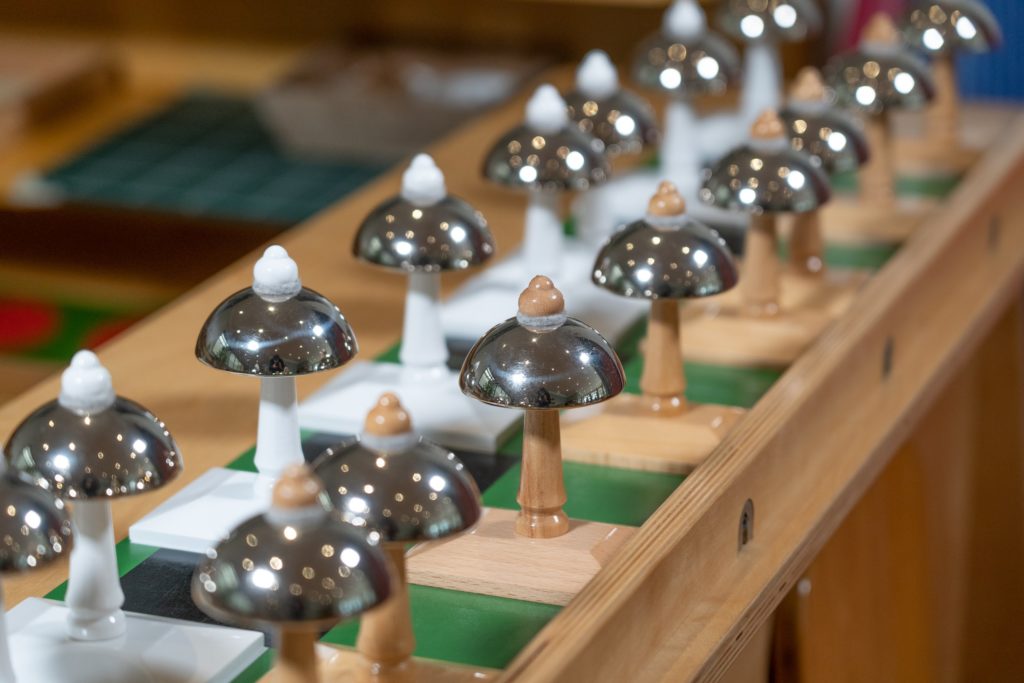
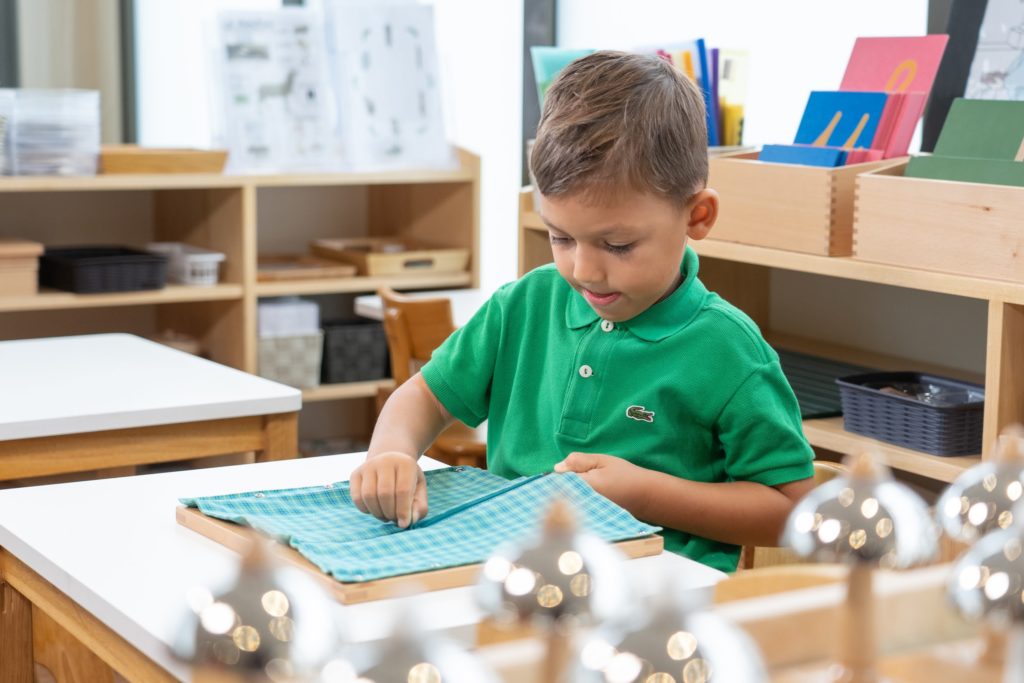

« The child is not a vessel that we fill, but a spring that we let flow »
Maria Montessori
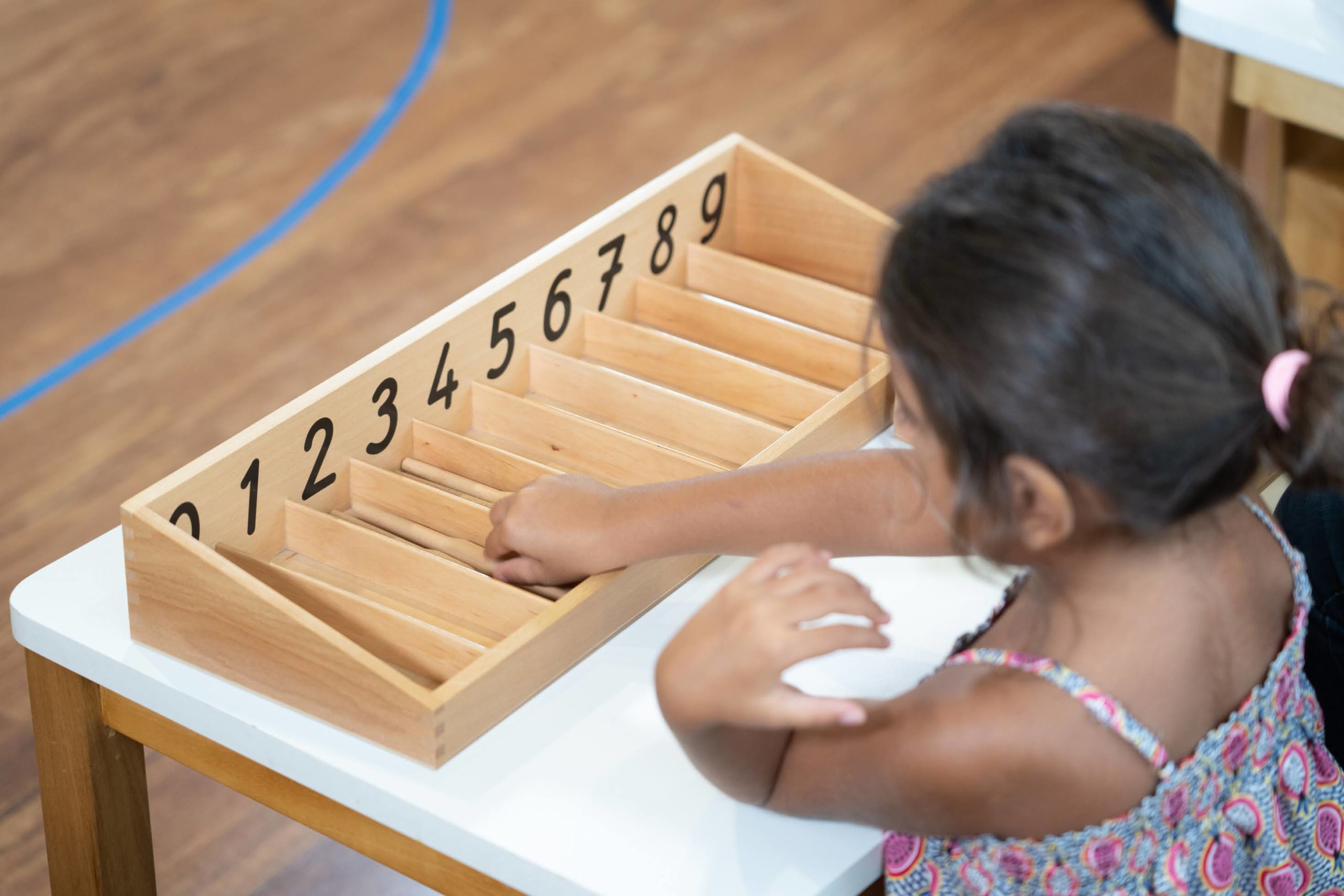
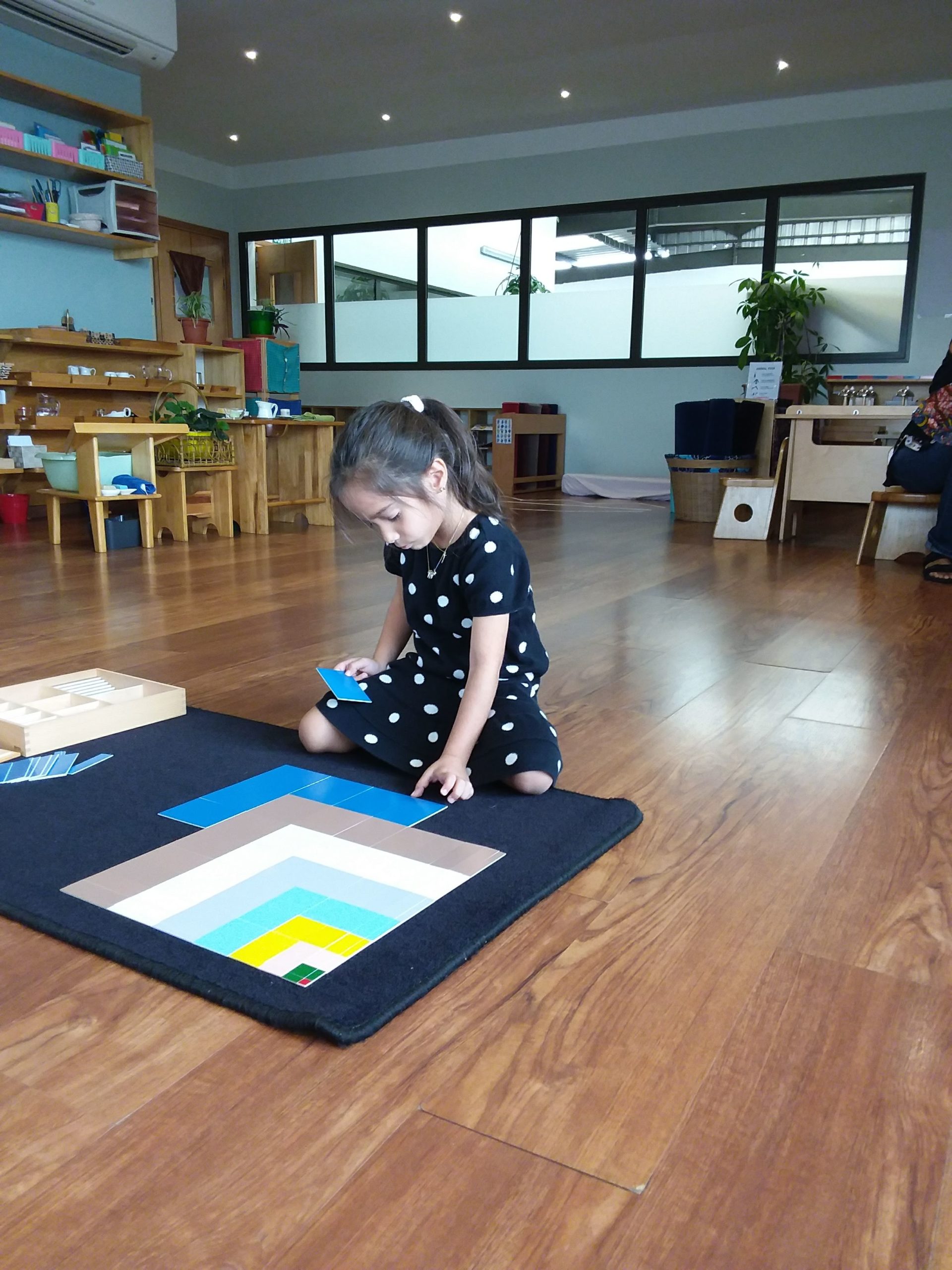
The Children’s House has several work areas. The materials included in the classrooms allow the children to progress at their own pace and learn as they wish.
Children are not limited to a predefined curriculum by year or by age. They are free to follow their cognitive abilities and thus meet their learning needs.
The material is available to children in the prepared environment by the educator and his team. All the activities in this area are linked to the culture in which the child lives. The corresponding exercises are linked with the functions of everyday life which allows repetition and therefore improvement
Language, music, art.
Practical life (care of the person, care of the interior environment, care of the exterior environment, grace and courtesy.)
Eye / hand coordination activities
Balance and locomotion activities
Stereognostic activities
The food
The cleanliness
Nap
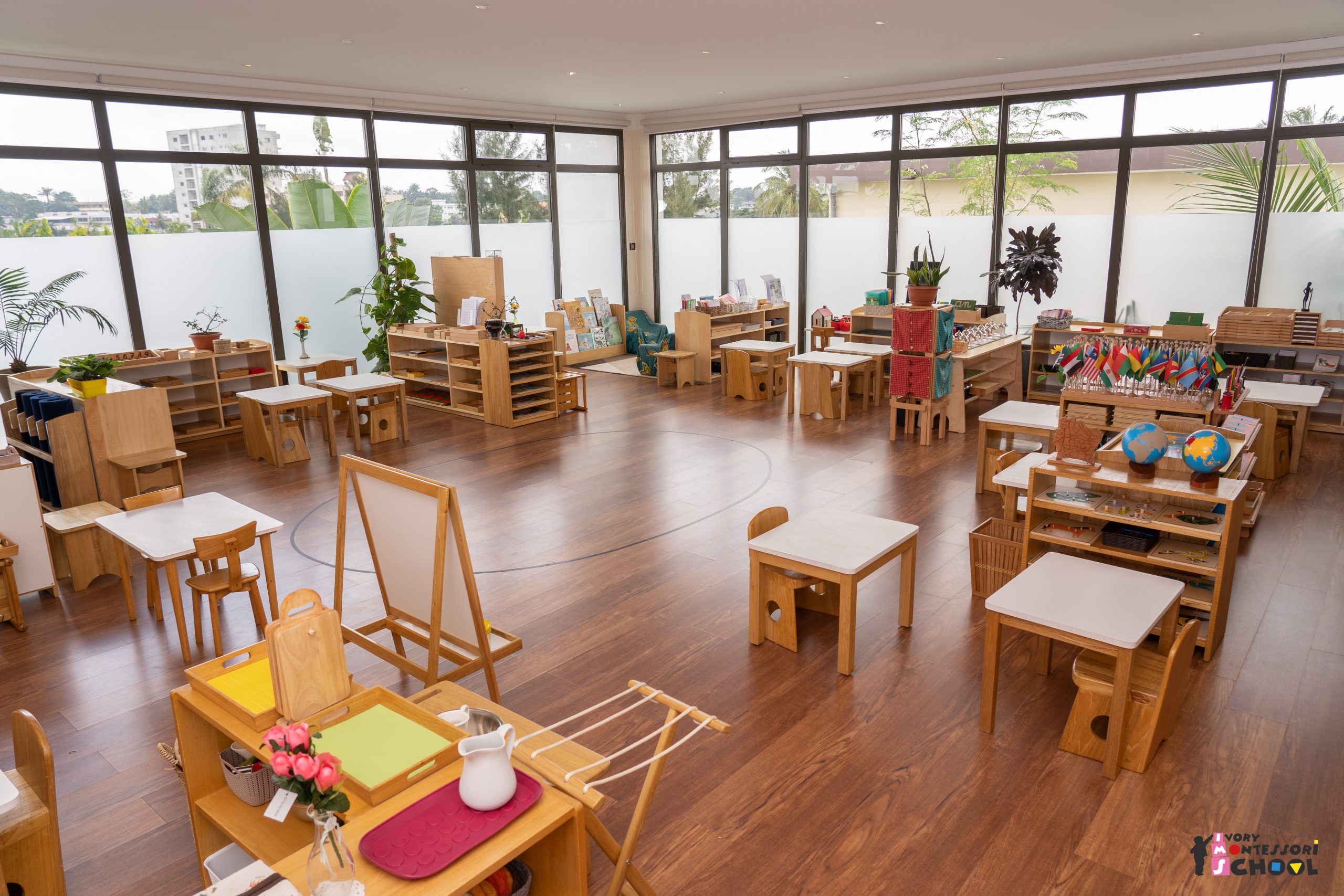
All the activities in this area are linked to the culture in which the child lives. The corresponding exercises are linked with the functions of everyday life which allows repetition and therefore improvement. For example, brushing teeth, combing hair, washing the table, polite formulas, preparing food, washing dishes, moving tables and chairs, etc.
The child experiences different materials, textures. One quality will be isolated at a time. The child classifies, orders, arranges the elements in the activity. He thus goes from the concrete to the abstract.
The creative talent of the child is expressed and he develops his musical and artistic taste through the various materials made available to him.
Vocabulary enrichment activities such as classified images around a theme or animal figurines, fruits, vegetables to allow the child to communicate with her/his peers, to enter into his culture and to use the appropriate words.
The adults in the class also make sure to accompany the children to recognize the emotions which overwhelm them and their feelings and to put a word to them.

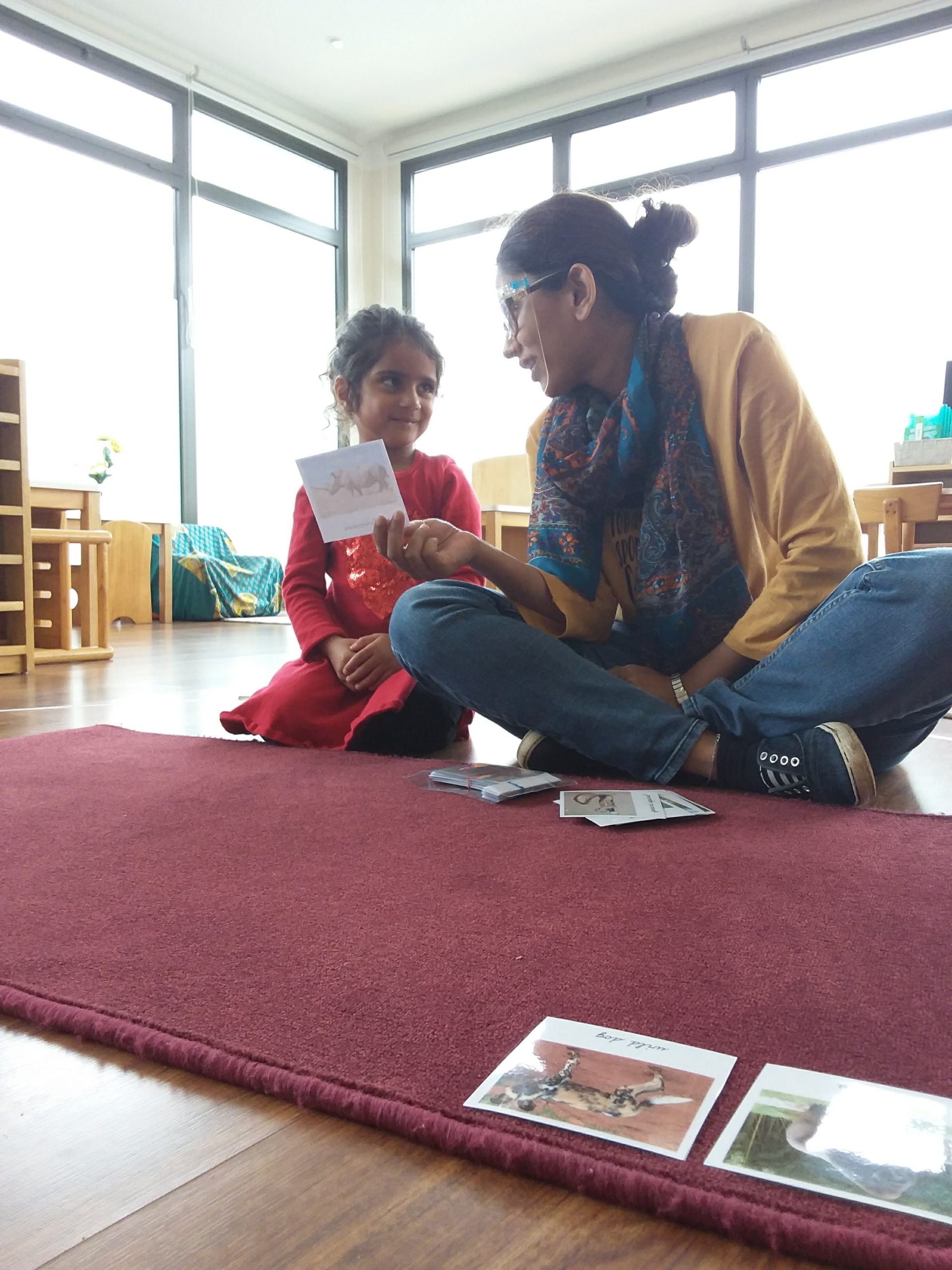
Lunch is a very important moment of sharing in our teaching approach.
The children and the educators all have lunch together. The activities around the organization of the meal (setting the table, distributing baskets, clearing) are part of the framework of learning « practical life » and socializing with others.
IMS offers a hot and balanced meal cooked, with fresh products, in the school. The menu is designed by a dietitian (Ms. Tatiana Ghandour).
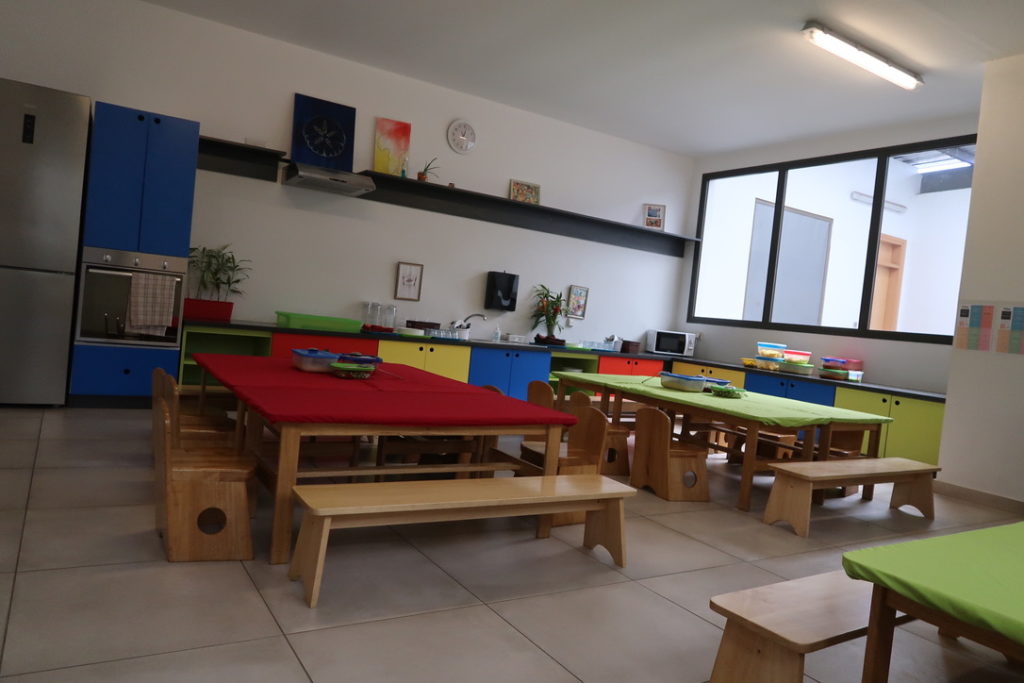
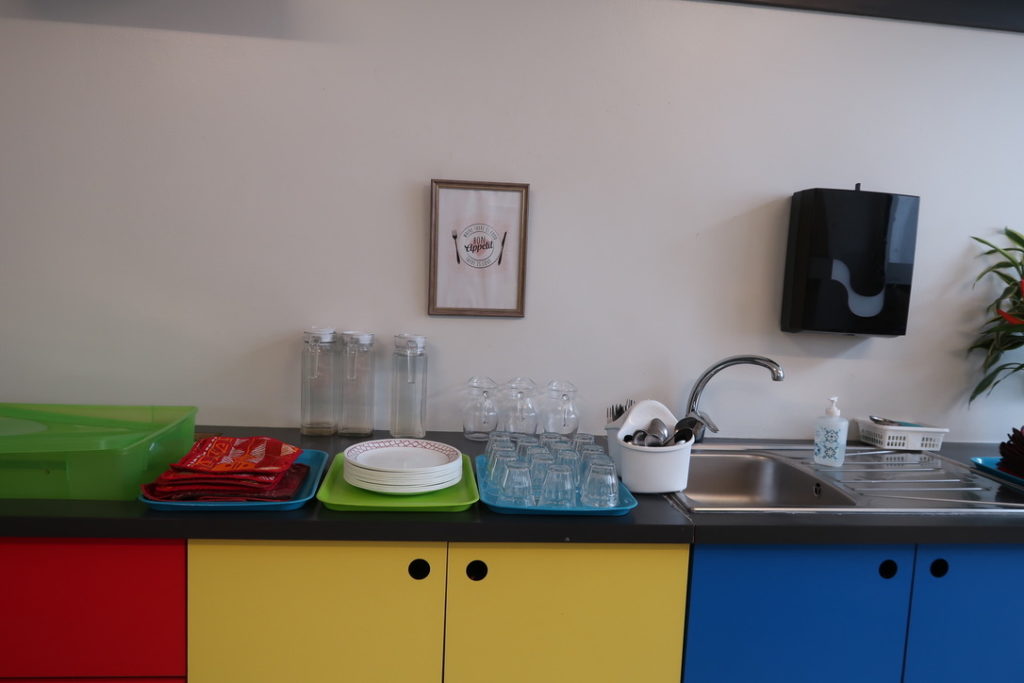

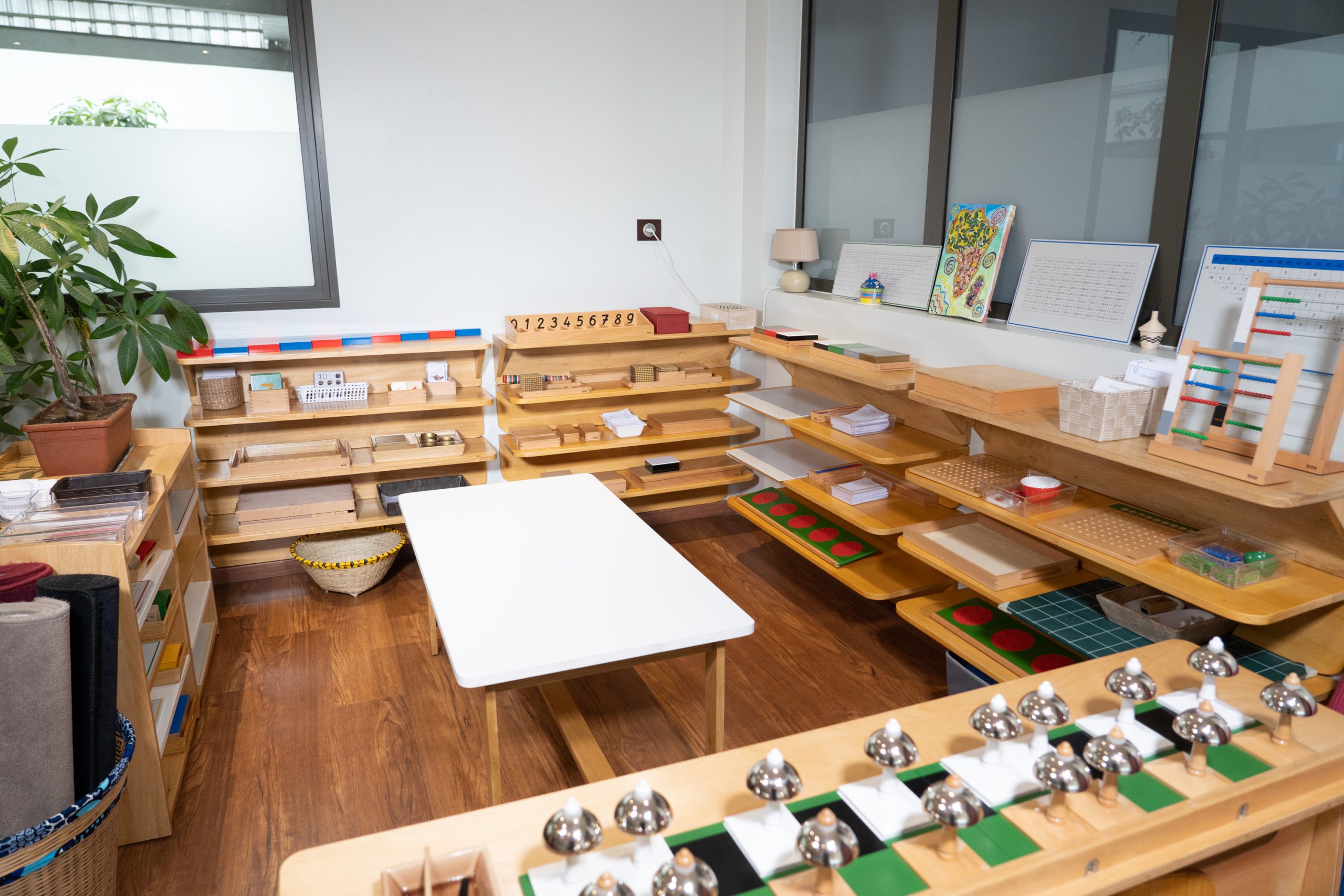
Start : 8:00 AM – 8:30 AM
End : 3:00 PM – 3:30 PM
Wednesday
Start : 8:00 AM – 8:30 AM
End : 11:30 AM – 12:00 PM
We follow the same school holidays as the French schools in Abidjan. The school offers half-day workshops the first week of the school holidays for school children and their siblings.